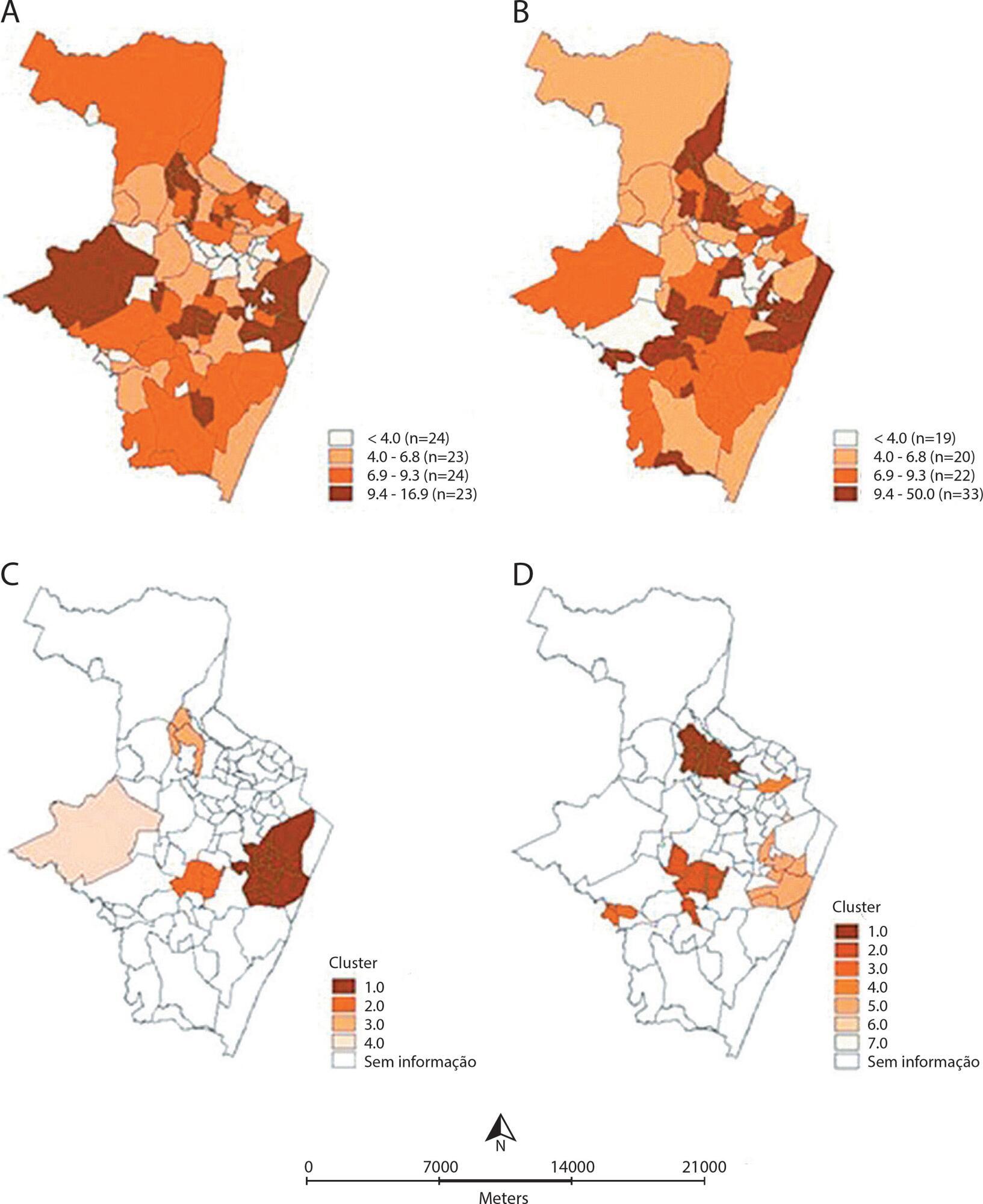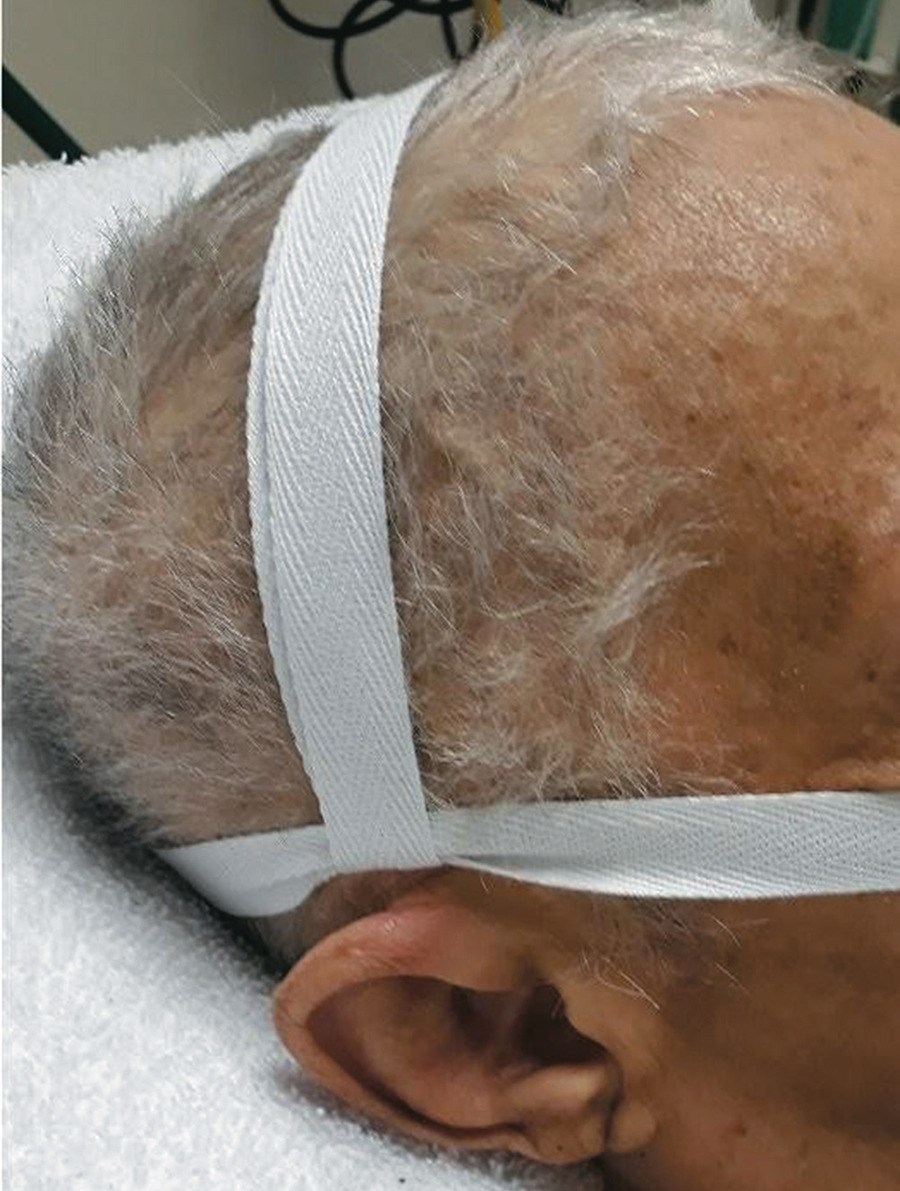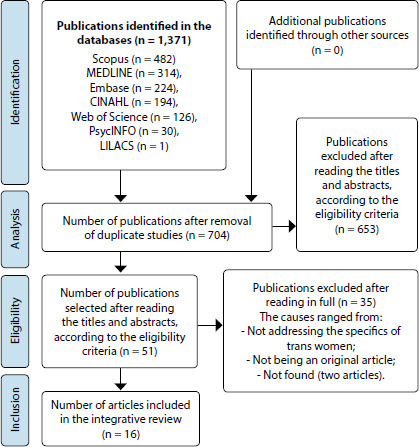-
RESEARCH01-01-2018
Spiritual needs experienced by the patient’s family caregiver under Oncology palliative care
Revista Brasileira de Enfermagem. 2018;71:2635-2642
Abstract
RESEARCHSpiritual needs experienced by the patient’s family caregiver under Oncology palliative care
Revista Brasileira de Enfermagem. 2018;71:2635-2642
DOI 10.1590/0034-7167-2017-0873
Views0See moreABSTRACT
Objective:
To understand the spiritual needs of the patients’ family caregiver under Oncology palliative care.
Method:
A descriptive, qualitative study with 20 family caregivers of patients hospitalized in an Oncology palliative unit. The data were collected through a phenomenological interview, and analyzed by the method of Amadeo Giorgi supported in the Merleau-Ponty’s Phenomenology of Perception.
Results:
The categories were unveiled: “Spirituality as a foundation for life”; “Spiritual needs sublimated by the family caregiver”; and “Care expected by the nurse”.
Conclusion:
Family caregivers appropriate spirituality as a coping strategy and meeting the purpose and meaning of the moment experienced. It is profitable for the nurse to contemplate the spiritual needs of the caregiver in order to provide a guided assistance in the humanization of care and comprehensive care. Therefore, there is a need for new studies that address this dimension to the family caregiver in the field of Oncology, since this care is incipient by the nurse.
-
RESEARCH01-01-2018
Being caregiver of people with Parkinson’s Disease: experienced situations
Revista Brasileira de Enfermagem. 2018;71:2628-2634
Abstract
RESEARCHBeing caregiver of people with Parkinson’s Disease: experienced situations
Revista Brasileira de Enfermagem. 2018;71:2628-2634
DOI 10.1590/0034-7167-2017-0008
Views0See moreABSTRACT
Objective:
To understand the experience of caring for a person with Parkinson’s Disease.
Method:
We used the qualitative study and thematic analysis with family caregivers of people with Parkinson’s Disease.
Results:
Three thematic categories were identified, being: Feelings related to Parkinson’s Disease; Changes in family daily routines; Caregiver strategies for self-care.
Final considerations:
Family care has shown the need for health services to provide caregivers support, as they experience situations of overload in care that can contribute to their illness. The findings also allow nurses to see the need for differentiated care for caregivers that, by assisting them with their needs, favor the quality of life of the caregiver, reduce the possibility of illness, allowing a more efficient care to the entity with chronic illness.
-
RESEARCH01-01-2018
Humanized practices of obstetric nurses: contributions in maternal welfare
Revista Brasileira de Enfermagem. 2018;71:2620-2627
Abstract
RESEARCHHumanized practices of obstetric nurses: contributions in maternal welfare
Revista Brasileira de Enfermagem. 2018;71:2620-2627
DOI 10.1590/0034-7167-2017-0290
Views0See moreABSTRACT
Objective:
To analyze the practice of obstetric nurses operating in a prenatal/delivery/postpartum unit of a university hospital in Mato Grosso and the maternal welfare resulted from the care provided in this scenario.
Method:
Study with a quantitative approach, carried out in a prenatal/delivery/postpartum unit of a university hospital in Cuiabá, Mato Grosso. The data were collected through the Scale of Maternal Welfare in Delivery Situation 2, and the study included 104 recent mothers in the period from June to September 2016. The data were analyzed in Epi Info version 7.
Results:
The results indicate that the practice of obstetric nurses is based on the humanization of labor and childbirth, however, the presence of invasive and unnecessary practices in the service did not influence the level of maternal welfare, which was optimum for 76% of the women.
Conclusion:
The lack of information might make the women less critical and, therefore, influence the evaluation of the care received
-
RESEARCH01-01-2018
Care coordination in Health Care for the child/adolescent in chronic condition
Revista Brasileira de Enfermagem. 2018;71:2612-2619
Abstract
RESEARCHCare coordination in Health Care for the child/adolescent in chronic condition
Revista Brasileira de Enfermagem. 2018;71:2612-2619
DOI 10.1590/0034-7167-2017-0787
Views0See moreABSTRACT
Objective:
To analyze the care coordination for the child and adolescent in chronic condition and users planning in the Health Care Network.
Method:
Qualitative study, conducted with 26 health professionals and managers through Focus Groups. Thematic content analysis was used.
Results:
Care coordination is fragile, with lack of support from the management, and presence of high turnover of managers and professionals. The limits in the network planning are due to frequent changes in the careflow. Communication between levels of care and lack of counter-referral makes network care unfeasible.
Final considerations:
There is a need for planning in the Health Care Network and establishment of careflow, as well as the construction of communication channels and tools of referral and counter-referral between professionals and services, for the constitution and integration of the network from the perspective of user-centered care.
-
RESEARCH01-01-2018
Influence of socio-demographic characteristics in the self-care of people with heart failure
Revista Brasileira de Enfermagem. 2018;71:2604-2611
Abstract
RESEARCHInfluence of socio-demographic characteristics in the self-care of people with heart failure
Revista Brasileira de Enfermagem. 2018;71:2604-2611
DOI 10.1590/0034-7167-2017-0480
Views1See moreABSTRACT
Objective:
To determine the influence of socio-demographic characteristics in the self-care of people with heart failure (HF).
Method:
Cross-sectional, analytical study, held in three private hospitals in Fortaleza, Ceará, Brasil, with 57 hospitalized patients. The data were collected through a demographic characterization form and a self-care assessment scale and were analyzed with inferential statistics, using mean comparison tests.
Results:
Self-care was best assessed in people with higher education level, higher household income and in a relationship.
Conclusion:
The socio-demographic characteristics influenced seven self-care practices: dietary control; monitoring of body weight; effort in labor activities; knowledge about HF; up-to-date vaccination record; leisure activities; and family and social support network with strong bonds. The higher prevalence of answers indicating satisfactory self-care practices among the patients occurred in the areas of health promotion and tolerance to stress.
-
01-01-2018
Ethical dilemmas for the areas of Nursing and Health in relation to Preprints
Revista Brasileira de Enfermagem. 2018;71:2602-2603
Abstract
Ethical dilemmas for the areas of Nursing and Health in relation to Preprints
Revista Brasileira de Enfermagem. 2018;71:2602-2603
DOI 10.1590/0034-7167.201871supl601
Views0According to a recent publication by a group of researchers at the National Institutes of Health and the Whitehead Institute(), a preprint submission is defined as a complete written description of a scientific work that has not yet been published in a journal. It may be a research article, an editorial, a review, or another […]See more -
01-01-2018
Dilemas éticos para área da Enfermagem e da Saúde em relação ao Preprint
Revista Brasileira de Enfermagem. 2018;71:2602-2603
Abstract
Dilemas éticos para área da Enfermagem e da Saúde em relação ao Preprint
Revista Brasileira de Enfermagem. 2018;71:2602-2603
DOI 10.1590/0034-7167.201871supl601
Views0De acordo com uma recente publicação de um grupo de pesquisadores do National Institutes of Health e do Whitehead Institute(), uma submissão preprint é definida como uma descrição escrita completa de um trabalho científico que ainda não foi publicado em um periódico. Pode ser um artigo de pesquisa, editorial, revisão ou outro tipo de documento […]See more -
ERRATUM01-01-2018
ERRATUM
Revista Brasileira de Enfermagem. 2018;71:2349-2350
Abstract
ERRATUMERRATUM
Revista Brasileira de Enfermagem. 2018;71:2349-2350
DOI 10.1590/0034-7167.201871suppl5e02
Views0Article “Integrative review of literature: nursing care to aged people with HIV”, with number of DOI: http://dx.doi.org/10.1590/0034-7167-2017-0264, published in the journal Revista Brasileira de Enfermagem, v71(suppl 2):884-82:References 28 and 30 should be deleted.[…]See more
-
ORIGINAL ARTICLE07-15-2020
Spatial analysis of inequalities in fetal and infant mortality due to avoidable causes
Revista Brasileira de Enfermagem. 2020;73:e20190088
Abstract
ORIGINAL ARTICLESpatial analysis of inequalities in fetal and infant mortality due to avoidable causes
Revista Brasileira de Enfermagem. 2020;73:e20190088
DOI 10.1590/0034-7167-2019-0088
Views0See moreABSTRACT
Objectives:
to analyze social inequalities in spatial distribution of fetal and infant mortality by avoidable causes and identify the areas of greater risk of occurrence.
Methods:
avoidable deaths of fetal and infant residents of Recife/Brazil were studied. The rates of avoidable fetal and infant mortality were calculated for two five-year periods, 2006-2010 and 2011-2015. The scan statistics was used for spatial analysis and related to the social deprivation index.
Results:
out of the total 2,210 fetal deaths, 80% were preventable. Avoidable fetal mortality rates increased by 8.1% in the five-year periods. Of the 2,846 infant deaths, 74% were avoidable, and the infant mortality rate reduced by 0.13%.
Conclusions:
in the spatial analysis, were identified clusters with higher risk for deaths. The social deprivation index showed sensibility with areas of worse living conditions.

-
ORIGINAL ARTICLE07-08-2020
The association between knowledge about HIV and risk factors in young Amazon people
Revista Brasileira de Enfermagem. 2020;73(5):e20190453
Abstract
ORIGINAL ARTICLEThe association between knowledge about HIV and risk factors in young Amazon people
Revista Brasileira de Enfermagem. 2020;73(5):e20190453
DOI 10.1590/0034-7167-2019-0453
Views0See moreABSTRACT
Objectives:
analyze the association between the level of HIV knowledge among young people from Amazonas region, their sociodemographic profile and infection risk factors.
Methods:
cross-sectional analytical study, which used a structured questionnaire containing questions about sociodemographic, behavioral aspects and HIV knowledge. Data were grouped by sex and underwent ordinal and binary logistic regression analysis.
Results:
the students had an HIV knowledge deficit, associated with a low educational level of their parents and low family income. The most frequent risk factors were lack of knowledge on the part of female students regarding proper male condom use, their infrequent use in sexual relations and failure to do HIV testing. There was an association between level of knowledge and use of dating apps by female students.
Conclusions:
there was no association between level of knowledge and the preponderant risk factors, but the students’ knowledge deficit rendered them more vulnerable to infection.
-
ORIGINAL ARTICLE05-03-2021
Medical device-related pressure injury prevention in critically ill patients: nursing care
Revista Brasileira de Enfermagem. 2021;74(2):e20200062
Abstract
ORIGINAL ARTICLEMedical device-related pressure injury prevention in critically ill patients: nursing care
Revista Brasileira de Enfermagem. 2021;74(2):e20200062
DOI 10.1590/0034-7167-2020-0062
Views0See moreABSTRACT
Objectives:
to know the care implemented by the nursing team to prevent medical device-related pressure injuries in critically ill patients.
Methods:
this is a qualitative research conducted with 15 nursing professionals from Intensive Care Unit. Sampling was carried out by theoretical saturation. For data analysis, the Discourse of the Collective Subject technique was used.
Results:
six speeches emerged, whose central ideas were interventions for medical device-related pressure injury prevention: care in fixation; frequent repositioning; protection and padding of body areas in contact; preferences for flexible materials, when available; attention of professionals so that they do not comer under patients; early assessment and removal, when clinically possible.
Final Considerations:
nursing care was directed mainly to respiratory devices, catheters in general and monitoring equipment, indicating that professionals have the knowledge to provide safe assistance consistent with the literature.

-
ORIGINAL ARTICLE08-19-2019
Factors related to impaired comfort in chronic kidney disease patients on hemodialysis
Revista Brasileira de Enfermagem. 2019;72(4):889-895
Abstract
ORIGINAL ARTICLEFactors related to impaired comfort in chronic kidney disease patients on hemodialysis
Revista Brasileira de Enfermagem. 2019;72(4):889-895
DOI 10.1590/0034-7167-2018-0120
Views0See moreABSTRACT
Objective:
to analyze the factors related to the impaired comfort of chronic kidney diseases (CKD) patients on hemodialysis.
Method:
this is a cross-sectional study with 80 patients undergoing hemodialysis in a renal replacement therapy unit through interviews using two instruments, one for clinical and sociodemographic characteristics and the General Comfort Questionnaire, during the hemodialysis session. Mann-Whitney tests and the logistic regression model were used for data analysis.
Results:
the study found that being younger (p=0.045); being married (p=0.05); and absence of impaired physical mobility (p=0.007) were contributing factors for greater comfort in CKD patients on hemodialysis. Thus, when establishing the odds ratio, it was possible to observe that being 55 years of age or older, being single and having impaired physical mobility represents a 45.7% chance of developing this diagnosis.
Conclusions:
sociodemographic and clinical variables contribute to the study outcome, demanding attention during the planning of nursing interventions.
-
ORIGINAL ARTICLE07-01-2020
Quality of life and osteomuscular symptoms in workers of primary health care
Revista Brasileira de Enfermagem. 2020;73(5):e20190054
Abstract
ORIGINAL ARTICLEQuality of life and osteomuscular symptoms in workers of primary health care
Revista Brasileira de Enfermagem. 2020;73(5):e20190054
DOI 10.1590/0034-7167-2019-0054
Views1See moreABSTRACT
Objectives:
to evaluate the quality of life and musculoskeletal symptoms in primary care workers.
Methods:
descriptive, correlational and cross-sectional study with 85 workers using the WHOQOL-Bref and Nordic Osteomuscular Symptoms Questionnaire.
Results:
lower quality of life for the Environment domain and higher for Social Relationships. Workers reported pain in lower back, neck, shoulders, wrists/hands/fingers and knees. Neck pain influenced Physical (p=0.015) and Psychological (p=0.030) domains; shoulder pain (p=0.004) and dorsal region (p=0.013) influenced the Physical domain; pain in knees influenced Physical (p=0.000) and Environment (p=0.032) domains; pain in the ankles/feet influenced Physical (p=0.000), Psychological (p=0.032) and Environment (p=0.007) domains; pain in the dorsal region influenced the Physical domain (p=0.013).
Conclusions:
workers evaluated their quality of life as good or very good and reported to be satisfied or very satisfied with their health. They also reported pains in lower back, neck, shoulders, wrists/hands/fingers and knees. Pain has influenced the quality of life.

-
05-21-2021
Men’s mental health in the COVID-19 pandemic: is there a mobilization of masculinities?
Revista Brasileira de Enfermagem. 2021;74:e20200915
Abstract
Men’s mental health in the COVID-19 pandemic: is there a mobilization of masculinities?
Revista Brasileira de Enfermagem. 2021;74:e20200915
DOI 10.1590/0034-7167-2020-0915
Views0See moreABSTRACT
Objective:
to understand how the COVID-19 pandemic mobilizes masculinities in relation to mental health.
Methods:
qualitative study conducted with 400 men, in a virtual environment, in all regions of Brazil. The data were analyzed by the Discourse of the Collective Subject and based on Symbolic Interactionism.
Results:
the mobilization of masculinities emerged from men towards the recognition of weaknesses and psycho-emotional vulnerabilities, with narratives that reveal the expression of feelings, pain, discomfort and psychological suffering, and showed themselves to be sensitive and engaged in performing practices, including autonomous ones, of health care mental.
Final considerations:
the pandemic mobilizes masculinities as men print meanings and senses, in their interaction and interpretation of mental health, and is a marker for the nursing clinic conduct.
-
REVIEW03-07-2022
Gender violence perpetrated against trans women
Revista Brasileira de Enfermagem. 2022;75:e20210173
Abstract
REVIEWGender violence perpetrated against trans women
Revista Brasileira de Enfermagem. 2022;75:e20210173
DOI 10.1590/0034-7167-2021-0173
Views0See moreABSTRACT
Objectives:
to identify scientific evidence on gender violence perpetrated against trans women.
Methods:
integrative review, carried out in June 2020, without time frame, in the Scopus, MEDLINE, Embase, CINAHL, WoS, PsycInfo and LILACS databases. The controlled descriptors of DeCS, MeSH and their entry terms were used: “Transgender People”, “Transgender”, “Gender Identity”, “Transsexuality”, “Gender Violence”, “Aggression”, “Sexual Offenses”, “Rape”, “Violence”, “Domestic Violence”. The presentation and synthesis of the results were presented in the PRISMA-2009 flowchart.
Results:
the final sample, consisting of 16 articles, identified different types of violence (sexual, physical, verbal, psychological and financial), perpetrated by family members, strangers, police officers, intimate partners, health professionals, acquaintances, or friends.
Conclusions:
trans women suffer violence and social exclusion that result from stigma and discrimination due to gender identity and result in unrestricted damage to physical health.

-
ORIGINAL ARTICLE03-24-2021
Health promotion actions in the School Health Program in Ceará: nursing contributions
Revista Brasileira de Enfermagem. 2021;74(1):e20190769
Abstract
ORIGINAL ARTICLEHealth promotion actions in the School Health Program in Ceará: nursing contributions
Revista Brasileira de Enfermagem. 2021;74(1):e20190769
DOI 10.1590/0034-7167-2019-0769
Views1See moreABSTRACT
Objectives:
to compare health promotion actions carried out by Family Health teams in Ceará, linked to the School Health Program.
Methods:
a cross-sectional study involving the first and second cycles of an external assessment of 910 and 1,626 teams from 184 municipalities, which joined the Brazilian National Program for Improvement of Access and Quality of Primary Care. Eight clinical assessment and seven health promotion indicators were assessed, together with health professionals working in schools.
Results:
the interviewees were nurses (95.6% and 98.3%). Between the cycles, there was an increase in clinical assessment (78.7% and 91.3%), health promotion and disease prevention (82.5% and 89.3%) and survey of students for follow-up (41.4% and 66.4%) in schools.
Conclusions:
health actions at school advanced between cycles, with nurses as protagonists in school health, which can reduce vulnerabilities in children and adolescents and qualify Primary Care.
Search
Search in:
Nuvem de Tags
Adolescente (85) Atenção Primária à Saúde (239) COVID-19 (91) Criança (91) Cuidados de Enfermagem (269) Educação em Enfermagem (151) Educação em Saúde (139) Enfermagem (930) Enfermagem Pediátrica (86) Estudantes de Enfermagem (77) Estudos de Validação (131) Família (87) Idoso (208) Promoção da Saúde (99) Qualidade de Vida (104) Saúde do Trabalhador (86) Saúde Mental (145) Saúde Pública (82) Segurança do Paciente (150) Tecnologia Educacional (100)



